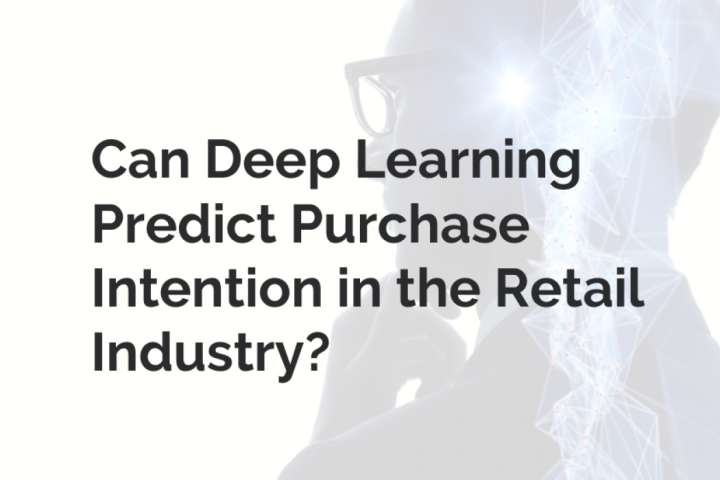Crucially, machine and deep learning are key players in the e-commerce space. Although the most successful e-commerce companies such as Jumia, Amazon, Inc, Alibaba Group Holding Ltd, eBay Inc, and Rakuten, Inc leverage data science basics, they further apply deep learning techniques.
Deep learning offers distinct advantages over traditional statistical modeling for predicting changes in customer shopping behavior, which can lead to improved profit opportunities.
Online stores are crucial data avenues for the application of artificial intelligence (AI) and deep machine learning in the Ghanaian retail and e-commerce space. Customer habits can be deeply understood at these data points. The democratisation of AI has similarly reinvented marketing by revealing new sub-fields like customer analytics.
Is Your Firm Ready To Apply Deep Learning Techniques?
Reasonably, any business can capitalise on deep learning techniques as long as two criteria are met:
- Access to a large volume of data
- Investment in the infrastructure and human resources
Opportunely, ad providers such as Facebook and Google enable small businesses to easily collect data by deliberately pasting a script on their websites.
Therefore, teams who hardly possess the capacity to build a deep learning model can at least leverage these tech giants.

Interestingly, models of deep learning possess the functionality of predicting individual purchasing intent, unlike other business intelligence dashboards that look at the general picture.
What Calibre Of Data Does The E-Commerce Space Use?
- Demographics: gender, race, age, income, disabilities, mobility, educational attainment, homeownership, employment status, and even location
- Geo-location: Locational technologies such as GPS or IP addresses are built-in mobile apps to identify and track the whereabouts of connected electronic devices used by customers.
- Cookie: Cookies embedded into websites and mobile applications can further recognise devices used by customers. These cookies can build personas of visitors in the light of their taste and preferences. Businesses pride themselves in using such rich data insights in tailoring products and services to heighten consumer experience.
Nevertheless, data analysts admit some error of margins exists in generating hugely reliable predictions on future consumer purchasing behaviour. Hence, deep learning algorithms can play a crucial role.
How Does Deep Learning Inform Purchase Intent?
Spears and Singh (2004) define purchase intention as a consumer’s conscious plan or intention to make an effort to purchase a product. In addition, online purchase intention focuses on whether consumers are willing and intending to buy a certain product via online transaction platforms (Pavlou, 2003).
Application of deep learning cases such as self-driving cars, facial recognition, and translation apps are not set aside for only high-tech products. Indeed, e-commerce companies are empowering their marketing teams through the adaptation of deep learning technology.
Case Example
In the case of Jumia Ghana, a dataset can be collated from customer visits on Jumia mobile app and website. Metrics such as the number of individual purchases, minutes spent on accessing a particular product, last login date, and reviews can be used to predict the likelihood that a customer will purchase another product from their platform.
Interestingly, models of deep learning possess the functionality of predicting individual purchasing intent, unlike other business intelligence dashboards that look at the general picture. Stimulations can also be tilted towards customers in the light of unmatched discounts assisting the marketing team to appropriately prepare ad budgets.
3 Uses of Deep Learning in the retail industry
Measuring, evaluating, and predicting a customer’s purchase intent isn’t the only use for deep learning in the retail industry. Other deep learning applications include:
Predicting Churn Rate: Information from AI tools about customer behaviour gives much insight into acquisition rates, defection rates, and retention rates.
Recommendation Algorithms: Netflix, LinkedIn Learning and Skillshare, and Apple TV use deep learning recommendation algorithms from the customer’s habits on their platforms to recommend shows, products, or courses.
Fraud Prevention: Frauds in the light of fake emails, fake reviews, and fake social media profiles can easily be identified by deep learning techniques to build or maintain a robust brand image and association among e-commerce businesses.
Ultimately, Ghanaian retail and e-commerce businesses are on the alert to future deep learning opportunities, create rich databases, build capability through training and hires and develop plans for experimentation. It is more than apparent that deep learning has the potential to advance state-of-the-art marketing practice by enabling analysis of rich databases and real-time experimentation.
References
Pavlou, P. A. (2003). Consumer acceptance of electronic commerce: Integrating trust and risk with the technology acceptance model. International journal of electronic commerce, 7(3), 101-134.
Spears, N., & Singh, S. N. (2004). Measuring attitude toward the brand and purchase intentions. Journal of current issues & research in advertising, 26(2), 53-66.
Tran, V., & Nguyen, H. (2020). Consumer attitudes towards beauty bloggers and paid blog advertisements on purchase intention in Vietnam. Management Science Letters, 10(5), 1017-1026.
Urban, G., Timoshenko, A., Dhillon, P., & Hauser, J. R. (2020). Is Deep Learning a Game Changer for Marketing Analytics?. MIT Sloan Management Review, 61(2), 70-76.
Wai, L. (2016, December). Data science at Udemy: Agile experimentation with algorithms. In 2016 Future Technologies Conference (FTC) (pp. 355-360). IEEE.
